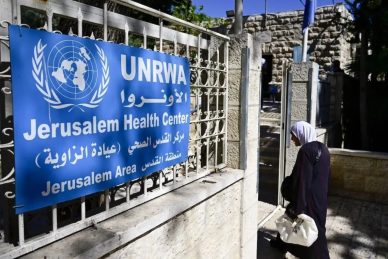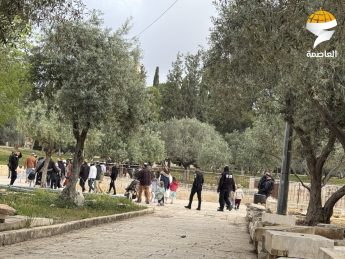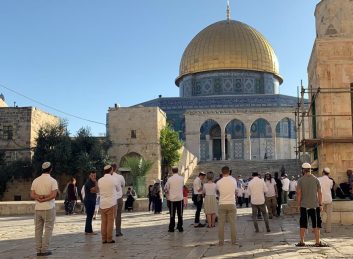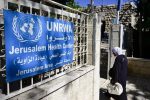The UN General Assembly on Thursday called for respect for the historic status quo at the holy places of Jerusalem and stressed the need to urgently exert collective efforts to launch credible negotiations on all final status issues in the Middle East peace process.
Through the terms of the text titled “Peaceful settlement of the question of Palestine” the Assembly reiterated its call for the achievement of a comprehensive just and lasting peace in the Middle East.
By further terms it also called upon Israel to cease all unilateral actions in the Occupied Palestinian Territory and called upon all States not to recognize any changes to the pre‑1967 borders and not to render aid or assistance to illegal settlement activities.
Also adopted was a resolution titled “Jerusalem” in which the Assembly reiterated its determination that any actions taken by Israel the occupying Power to impose its laws jurisdiction and administration on the Holy City of Jerusalem are illegal.
Recalling the 2015 Security Council press statement on Jerusalem in which the Council called for upholding unchanged the historic status quo at the Haram al‑Sharif the Assembly stressed that a comprehensive just and lasting solution to the question of the City of Jerusalem should take into account the legitimate concerns of both the Palestinian and Israeli sides.
President of the General Assembly Abduallah Shahed noted that the two items “the Question of Palestine” and “the Situation in the Middle East” are deeply intertwined said the spill‑over effects of the Palestinian‑Israeli dispute undermine the stability of the broader region.
“At stake is not only the region’s peace and security but our ability to come together as a global community and resolve international disputes in line with the founding vision of the United Nations” he said.
Efforts to resolve the issue should be informed by international human rights law and international humanitarian law he stressed adding that mere words are of no use to Palestinian people suffering from decades of occupation arbitrary arrests and illegal settlements on their land.
Noting that half of the region’s five million Palestinians are dependent on aid he added that 80 per cent of the population of Gaza is direly in need of assistance.
For his part Egypt’s permanent representative to the United Nations Mohamed Idris said that while the Organization has adopted a number of resolutions which are the basis for the international legitimacy for the State of Palestine Palestinian suffering continues to be passed down from one generation to the next.
Recalling the escalation of conflict in the Gaza Strip in May he said his country played its natural historic role to negotiate a ceasefire. Voicing concern about the expansion of settlements demolition of homes the Judaization of East Jerusalem and the blockade on Gaza he said that the burden of all this is greater because of the consequences of the COVID‑19 pandemic.
The problem could explode again at any minute he cautioned stressing the need to resuscitate the peace negotiations including by holding a ministerial meeting of the Quartet and by deploying efforts to re‑establish trust between the two sides.















